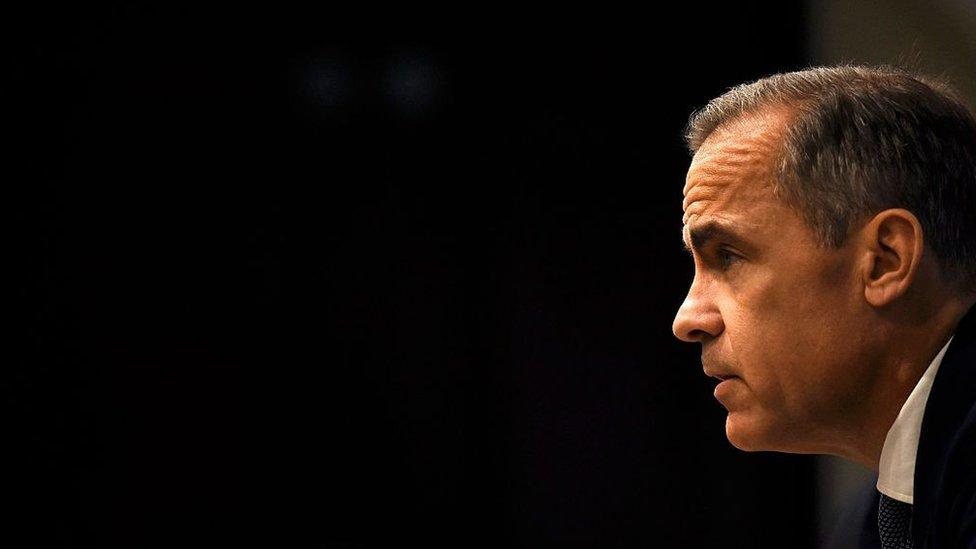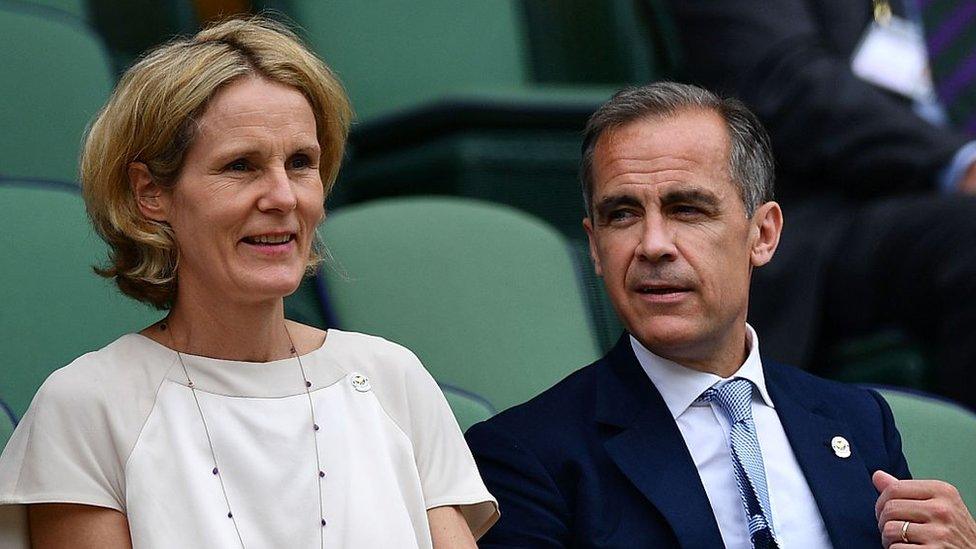Mark Carney to leave Bank of England in June 2019
- Published

Pressure was mounting on the governor to make a decision
Bank of England governor Mark Carney says he will step down in June 2019.
It means he will serve one year more than the five he had committed to, but will still be two short of the usual eight years governors serve.
Mr Carney said the move "recognised the importance to the country of continuity" during Brexit negotiations.
But Treasury Select Committee chairman Andrew Tyrie said his decision to serve six years "requires a good deal of examination and explanation".
Prime Minister Theresa May said Mr Carney's decision to stay for an extra year would provide "continuity and stability as we negotiate our exit from the European Union".
Mark Carney: the 'film star' Bank of England governor
May: Carney is 'right man for job'
Chancellor Philip Hammond also said he welcomed Mr Carney's decision to stay an additional year.
He said it would enable Mr Carney to continue his "highly effective leadership of the Bank through a critical period for the British economy as we negotiate our exit from the European Union".
Mr Carney had originally said he would announce his decision on whether he planned to continue until 2021 by the end of the year.
But with conflicting newspaper reports over how long he would stay on in the role, pressure was mounting on the governor to make a decision.
He said his decision to stay until 2019 "should help contribute to securing an orderly transition to the UK's new relationship with Europe".

Mark Carney and his wife, Diana, have enjoyed attending Wimbledon during their time in the UK
Mr Tyrie said the "much needed clarification" over how long Mr Carney would stay at the helm of the Bank was welcome.
But he criticised the Treasury and Mr Carney for moving away from the original five-year term, but not adhering to the normal eight years that governors typically serve.
Earlier in the day, Mr Carney had an almost two-hour meeting with Mrs May, after which a spokeswoman said the prime minister would be "supportive of him going on beyond his five years" and "absolutely" believed he was "the right man for the job".
Mr Carney told a House of Lords committee last week that should he decide to go before 2021, it would be an "entirely personal decision".
Canadian Mr Carney has a wife and four daughters, who moved to London with him in 2013.
The Financial Times had earlier suggested Mr Carney wanted to stay on to defend the Bank of England's independence against attacks from pro-Brexit campaigners.
They have argued that the Bank produced deliberately gloomy economic forecasts to support the Remain campaign.
'Criticism not justified'
Conservative MEP Daniel Hannan, a prominent pro-Brexit campaigner, had suggested Mr Carney should leave his post.
"If he does stay, it's got to be on the basis that he's not the rock star banker who presumes to tell Scotland whether to stay and Britain which way to vote, but rather sticks narrowly to his brief," Mr Hannan told BBC Radio 4's Today programme.
However, Dame Kate Barker, a member of the Bank's Monetary Policy Committee between 2001 and 2010, told BBC 5 live that criticism of Mr Carney was not justified.
"I certainly don't think he's been particularly political," she said.
"The criticism, which is mostly around the Bank saying what it thought might happen if we come out of the EU, is really overstated.
"The Bank had to say what it thought might happen."